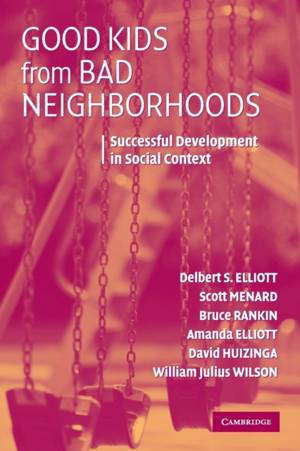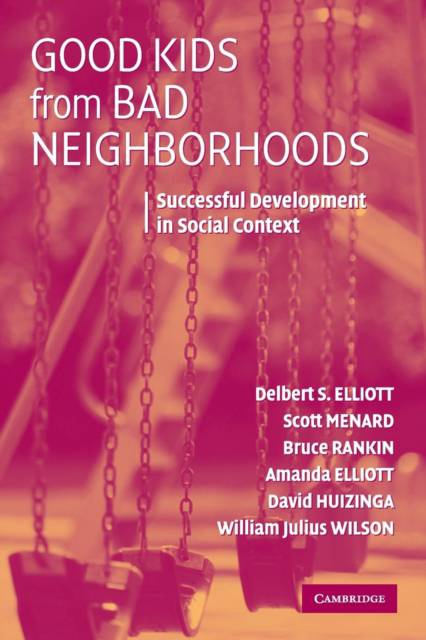
- Afhalen na 1 uur in een winkel met voorraad
- Gratis thuislevering in België vanaf € 30
- Ruim aanbod met 7 miljoen producten
- Afhalen na 1 uur in een winkel met voorraad
- Gratis thuislevering in België vanaf € 30
- Ruim aanbod met 7 miljoen producten
Zoeken
Good Kids from Bad Neighborhoods
Successful Development in Social Context
Delbert S Elliott, Scott Menard, Bruce Rankin
Paperback | Engels
€ 58,45
+ 116 punten
Uitvoering
Omschrijving
This is a study of successful youth development in poor, disadvantaged neighborhoods in Denver and Chicago - a study of how children living in the worst neighborhoods develop or fail to develop the values, competencies and commitments that lead to a productive, healthy responsible adult life. While there is a strong focus on neighborhood effects, the study employs a multicontextual model examining both the direct effects of the neighborhood ecology, social organization and contexts embedded in the neighborhood. The unique and combined influence of the neighborhood, family, school, peer group and individual attributes on developmental success is estimated. The view that growing up in a poor, disadvantaged neighborhood condemns one to a life of repeated failure and personal pathology is revealed as a myth, as most youth in these neighborhoods are completing the developmental tasks of adolescence successfully.
Specificaties
Betrokkenen
- Auteur(s):
- Uitgeverij:
Inhoud
- Aantal bladzijden:
- 416
- Taal:
- Engels
Eigenschappen
- Productcode (EAN):
- 9780521682213
- Verschijningsdatum:
- 4/09/2006
- Uitvoering:
- Paperback
- Formaat:
- Trade paperback (VS)
- Afmetingen:
- 150 mm x 226 mm
- Gewicht:
- 566 g

Alleen bij Standaard Boekhandel
+ 116 punten op je klantenkaart van Standaard Boekhandel
Beoordelingen
We publiceren alleen reviews die voldoen aan de voorwaarden voor reviews. Bekijk onze voorwaarden voor reviews.











